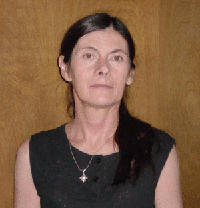 Heard of
Heard of Carl Rogers? Believe me, he has a lot to answer for in education and training. This is the guy who promoted 'client-centred' therapy and modern counselling. It is he who is largely responsible for the flood of therapy-oriented methods that have become widely adopted in education and training through appraisals, coaching, mentoring and the flood of emotional control training. Roger’s influence (unfortunatley) can be felt everywhere in modern learning.
This started way back in 1951 when Rogers had looked at 'student-centred teaching' in
Client-Centered Therapy (1951: 384-429). There he claimed that teaching is really facilitation and that we must allow the learner to relax to learn and feel free from any form of threat. Fine, but this was to turn into a monstrously distorted idea in the later
Freedom to Learn (1969:83: 93) which takes counselling principles and applies them to education in schools.
Here’s a short history of how emotional control became institutionalised:
Therapy mad - Out of an earlier psychoanalytic tradition the US became a ‘therapeutic state’ in 60s – and we imported it - big time
Pseudo-psychological language - We managed to redefine personal difficulties as a sort of pathology – so that the everyday language of managers now includes terms like; self-esteem, in-denial, codependency, stress and so on (note that these terms only began to be used in 80s and 90s – see Furedi (2004)).
Professional intervention - The formalisation of relationships between people within organisations became increasingly codified as we institutionalised therapeutic practices
– appraisals, counselling and so on. A whole new HR priesthood became the supposed guardians of our emotional welfare.
Institutionalised therapeutic training – Therapy culture became codified as training courses e.g. emotional intelligence, stress management and now a tsunami of compliance and regulatory courses around diversity, age etc.
We now need ‘experts’, ‘processes’ or ‘training’ to manage what was the rough and tumble of everyday relationships with other people. On top of this there’s a whole ‘trauma’ industry where sensible legislation is used to push through often fatuous claims.
Of course, in most cases in this ‘counselling game’, both sides pretend that it’s a real dialogue. What used to be called honest discussion between adults now takes place behind closed doors in appraisals and counselling sessions, or even worse, official mentoring. We must all pray at the holy altar of endless open questions and the most banal forms of gossipy soul searching.
What seems like a sensible approach to human interaction, namely facilitation through authenticity in the facilitator of learning, has turned into its opposite - a sort of conformity of emotional control, where every sphere of life has become subject to a new emotional culture with therapeutic cures. Everyone is ill until proven healthy.
Learning is not a cure to an illnessRogers's influence on therapy, counselling and education is enormous. The general tone of learning through facilitation was set by him and continues to this day in a sort of counsellor/teacher role. This has been positive on the one side, but also has negative consequences. Facilitated learning may benefit more from the honest dissolution of misconceptions rather than an abundance of empathy. Unfortunately, the therapy-oriented techniques aimed at troubled minds do not always apply to people who simply want to learn. Not knowing something is not an illness to be cured by therapy.
Socratic method gone madIn a previous post I had a go at the naïve use of the term ‘Socratic method’. The therapy culture is the ‘Socratic method’ gone mad. In counselling, the idea that the client knows more than the counsellor became the prevalent model. Unfortunately, this extreme form of the Socratic method is difficult in learning, where, by definition, the learner doesn’t have the knowledge or skill to start with.
Rogers, C. and Freiberg, H. J. (1993)
Freedom to Learn (3rd edn.), New York: Merrill.
Furedi, F. (2004)
Therapy Culture Routledge.
Kirschenbaum, H. (1979)
On Becoming Carl Rogers, New York: Delacorte Press.
 Collision of cultures
Collision of cultures 









